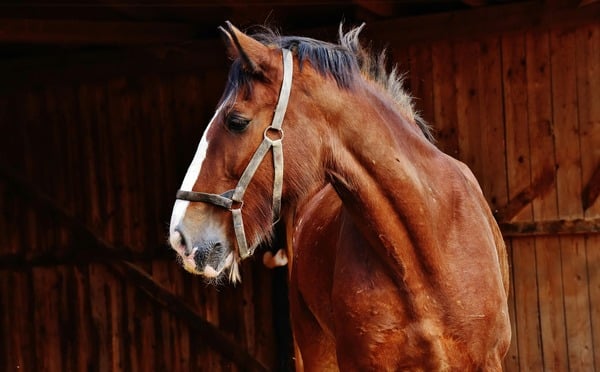
This story was originally published by TheStatehouseFile.com.
By Anna Cecil
TheStatehouseFile.com
March 17, 2025
Since 1945, the U.S. has lost 90% of its large-animal veterinarians. These types of vets care for cows, pigs, sheep, goats, horses and other livestock. On Monday in the Senate Agriculture Committee, equine enthusiasts showed that Indiana is no stranger to this vet shortage and it’s having an impact on the state’s $2 billion horse racing industry.
During the committee meeting, a bill was amended and passed that might alleviate the high caseload the state’s remaining large-animal vets face at Indiana horse racing tracks.
House Bill 1490 would allow the Indiana Horse Racing Commission to license certain individuals to carry out “teeth floating” on race horses at the tracks in Shelbyville and Anderson.
Teeth floating is the procedure of filing down a horse’s teeth. It is necessary because they can grow sharp edges, which may cause cuts or sores in the animal’s mouth and lead to an infection. Horses need to have their teeth floated between one and two times a year depending on their age.
Committee Chair Sen. Jean Leising, R-Oldenburg, began the meeting by informing committee members that at Horseshoe Indianapolis, the track in Shelbyville, there can be at least 1,050 horses during busy season but only one full-time vet to care for them.
The bill’s author, Rep. Beau Baird, R-Greencastle, said it would take the one vet working 40 hours a week an entire year just to provide teeth floating to those 1,050 horses. Baird said the bill also allows the animals to stay at the track to receive care instead of leaving, which puts them at risk of catching an illness or getting injured.
To receive a license to float teeth at the tracks in Shelbyville or Anderson, Baird’s bill requires the inquiring individual to provide five letters of recommendation from trainers that they have been employed by or have a license to float teeth in another state. The bill would not allow them to use power tools or sedation while carrying out the procedure at Indiana’s tracks.
The committee amended the bill to allow members of the International Association of Equine Dentistry or Equine Dental Providers of America to receive a teeth floating license from the Indiana Horse Racing Commission.
Baird said Indiana’s race horse owners would not let just anyone care for their animal.
“These are elite athletes,” he said. “The owners aren’t just going to have somebody come in and provide this service that they don’t know or is not qualified. … I don’t believe any owner is going to do something that would damage the horse’s ability to perform.”
Dr. Amy Narotsky, a large-animal veterinarian who cares for horses at the tracks in Shelbyville and Anderson as well as other horses in her area, opposed the bill on Monday. She said individuals, even if they are licensed, would not have a deep enough understanding of a horse’s mouth to safely float teeth.
Narotsky told TheStatehouseFile.com that there are important structures, like major arteries, which might be lacerated by a person without the expertise of a vet.
She prefers to sedate the horse while floating its teeth because this allows her to open the mouth and complete a full exam. Without sedation, Narotsky said the process can be dangerous and cause sharp spots to be missed.
She said the bill would allow for substandard and potentially harmful care, which would create more work for vets who would have to deal with the aftermath.
“Even when you do everything right, sometimes things happen. Things go wrong,” she said. “When there’s a veterinarian performing this procedure, they’ve got the tools and knowledge to deal with an emergency.”
Narotsky suggested requiring liability insurance for individuals licensed by the Indiana Horse Racing Commission. She said this would serve as a protection for the horse and not a barrier to the individual.
The amendment that passed on Monday originally included adding a liability insurance requirement, but that provision was removed.
All senators present at the meeting voted yes to move the bill forward. However, Sen. Sue Glick, R-LaGrange, decided to explain her vote. She said she voted “yes” to keep the bill moving but hopes to see some changes made to protect the horses.
“I dislike the idea of voting against the professionals in this field,” Glick said. “I have far too many horses up in my area to do anything to hurt any of them.”
Anna Cecil is a reporter for TheStatehouseFile.com, a news site powered by Franklin College journalism students.